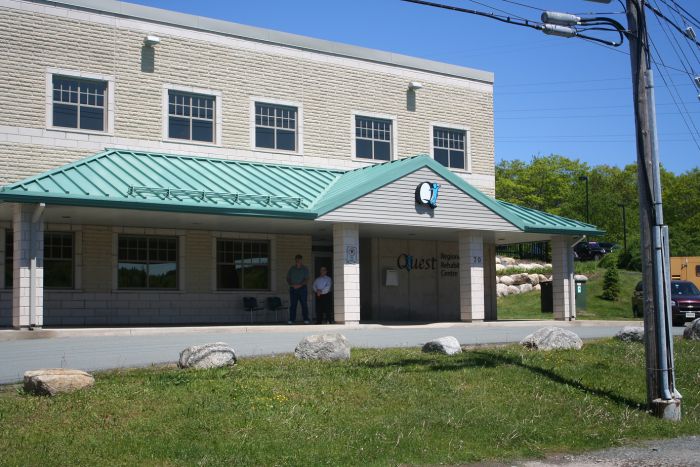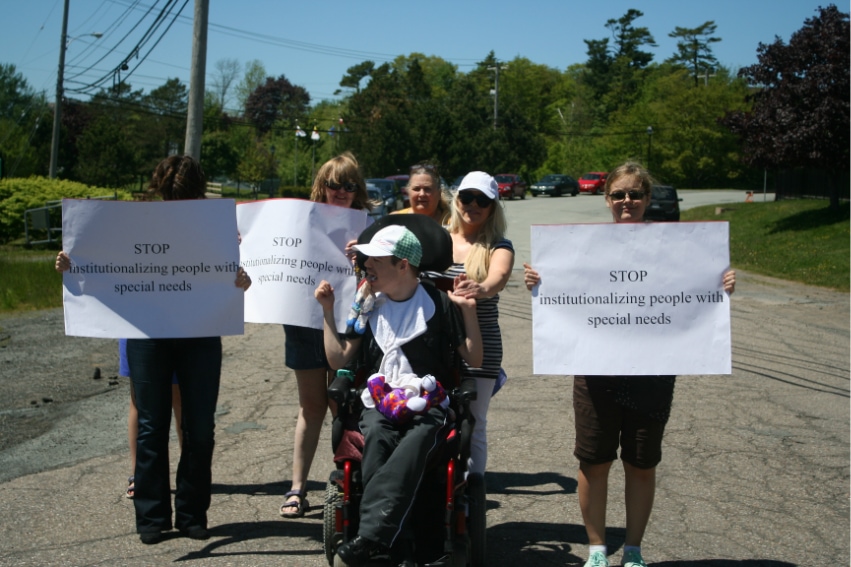KJIPUKTUK (Halifax) – Abuse at institutions for people living with intellectual disabilities continues to affect way too many many residents, a recent Freedom of Information request reveals. The institutions are regulated by the Department of Community Services.
Legislation to ensure that vulnerable residents are protected against abuse and incidents properly investigated is not effective, advocates say.
The numbers

Continuing a tradition we started in 2015, the Nova Scotia Advocate submitted a Freedom of Information request this November.
The Community Services response reveals that between April 2015 and August 2016 67 suspected cases of abuse were investigated. 34 cases of abuse were proven to have occurred, the remaining 33 were unfounded. Three cases were referred to police.
Leading the pack is an institution in Lower Sackville commonly referred to as Quest, but managed as three separate entities. Eight founded cases of resident-on-resident and staff-on-resident abuse occurred under its roof.
Altogether, the numbers suggest a significant increase over the 2013-15 numbers we reported earlier.
In 20 cases both the the abuser and the victim were residents, in 14 cases it was staff who abused a resident.
Residents engaged in emotional abuse of another resident eight times, sexual (non-consensual) abuse occurred four times, physical abuse six times, and in unspecified combinations of abuse happened two times.
Staff engaged in physical abuse four times and failed to provide adequate care two times. Physical abuse is defined as “resulting in pain, discomfort or injury, including slapping, hitting, beating, burning, rough handling, tying up or binding.”
As well, staff engaged in emotional abuse of residents three times. Four times staff engaged in unspecified combinations of abuse. One occurrence of financial abuse by staff is also reported, but what that entailed is not explained.
These numbers may not strike the reader as high, but keep in mind that we are looking at a population that probably does not exceed 2,000.
It’s also a population that is especially vulnerable to abuse, as Jean Coleman, director of the Nova Scotia Association for Community Living (NSACL) points out. The NSACL is a province-wide association that advocates for people with intellectual disabilities.
“I would suspect not many speak up, only ones that communicate verbally would speak up,” says Coleman. “And some residents who have lived in these institutions for a long time may not know to raise it.”
Abuse investigations not independent, police almost never informed, critics charge
Coleman is not alone in fearing that we may only be seeing the tip of the iceberg in terms of abuse at institutions.
But there are issues around legislation to protect residents from abuse as well. The cases reported in the Freedom of Information response were all investigated under the Protection of Persons in Care Act.
Coleman refers to widespread abuse of residents at the Riverton Residential Centre near New Glasgow, in 2009. When one resident’s jaw was broken by staff, police were not called right away, once on the scene the affected resident was never interviewed, and at the end staff members were simply moved to another section within the same institution, she says.
Nothing would have happened at all, if it hadn’t been for the parents, Coleman concludes.
Brenda Hardiman, co-founder of Advocating Parents Nova Scotia, strongly agrees. “Why not call in the police every time abuse is found to have taken place,” she wonders.
The Department doesn’t even share the information from the abuse investigation with the police, it makes the decision whether to call in the police entirely on its own, Hardiman says.
Both Coleman and Hardiman want an independent investigator under the Act, rather than an investigation conducted by departmental staff.
Community Services doesn’t believe there is a problem. Not every case is severe enough to call the cops, Heather Fairbairn, spokesperson for the Department explains.
“Activities that may be considered as abuse under the PPCA vary in nature and severity.They may not be violations under the Criminal Code of Canada such as some forms of emotional abuse (e.g., teasing, name-calling) and failure to provide adequate care (e.g., quality or quantity of food),” writes Fairbairn.
That may be so, says Hardiman, but surely physical abuse is criminal abuse, no matter the severity. “If a teacher at one of our schools were to slap a student the police would be called in, guaranteed. What makes institutions so different?”
And how do we know what incidents get shrugged off by Community Services before they even reach the investigation stage, Hardiman asks.
“All referrals received by the Department of Community Services undergo an inquiry and cases where reasonable grounds have been established are investigated,” Fairbairn writes, without providing further details.
“People should be out in the community”

Jeannie Whidden is a member of the People First Nova Scotia executive. Members of that organization have been labeled as living with intellectual disabilities. Its motto is nothing about us without us.
Whidden also believes there is more abuse happening in institutions than we are being told.
“I believe that a few have stepped forward, but a lot have not. They are going to be punished for speaking up. They have very little freedom in institutions,” says Whidden.
“You hear stories all the time about people having their weekly phone call taken away. Or an outing. We heard these stories from different people across the province,” she says.
Hardiman thinks better training and more staff is an urgent requirement. But ultimately she wants these large institutions closed. So does Coleman.
And so does Jeannie Whidden.
“Abuse in institutions in Nova Scotia should not be happening. These institutions should be closed. People should be out in the community,” says Whidden.
“Look at Nichelle Benn,” she adds. Benn is a young woman who had frequent run-ins with staff and the justice system while she was institutionalized. People frequently compared her with Ashley Smith, the teenager with behavioural issues who died by self-inflicted strangulation while incarcerated in Ontario. After a long campaign Benn finally won the right to live in a community setting.
“Nichelle finally got out on her own, and now she is doing great, she has her own apartment and everything,” says Whidden.
Read the Freedom of Information response here.
If you can, please support the Nova Scotia Advocate so that it can continue to cover issues such as poverty, racism, exclusion, workers’ rights and the environment in Nova Scotia.



